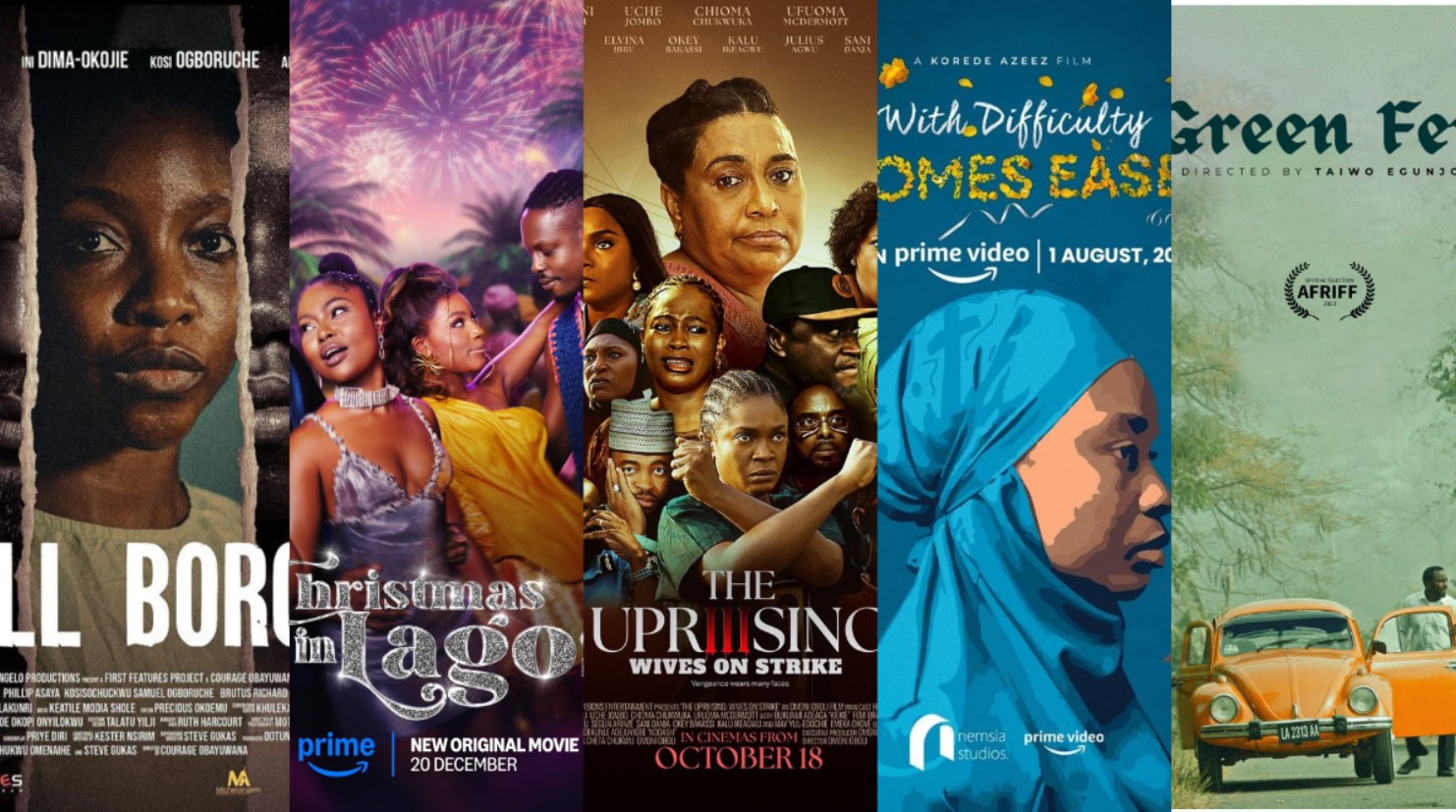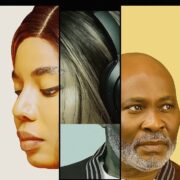With the awards set to take place on May 10th, the debate over what the AMVCA got right (and what it didn’t) is already in full swing.
By Joseph Jonathan
The nominations for the 2025 Africa Magic Viewers’ Choice Awards (AMVCA) were unveiled on March 23rd, and as always, they have sparked both celebration and controversy. While many of the year’s standout films and performances received well-deserved recognition, others were unexpectedly left out, leading to the inevitable conversation about the biggest snubs.
Of course, where there are snubs, there are also surprises–those nominations that no one saw coming, for better or worse. With the awards set to take place on May 10th, the debate over what the AMVCA got right (and what it didn’t) is already in full swing. Here’s a breakdown of some of this year’s most shocking omissions and unexpected nominations.
The Snubs
With Difficulty Comes Ease
One of the most baffling snubs of this year’s AMVCA nominations is the Korede Azeez-directed With Difficulty Comes Ease, a film that was widely regarded as one of Nollywood’s finest in 2024. Uzoamaka Aniunoh, in the lead role as Zainab delivered such a stunning performance that is both heartfelt and profound, making her a strong contender for Best Lead Actress, yet she was completely left out.
Despite the fact that she got a nomination for her role in Phoenix Fury, Aniunoh’s omission from the Best Lead Actress category for With Difficulty Comes Ease remains one of the most surprising snubs of the AMVCA nominations.

Her performance in the film was widely praised for its emotional depth and authenticity, with many critics and audiences considering it one of the strongest lead performances of the year. While her recognition for Phoenix Fury is deserved, it’s hard to ignore the fact that her work in With Difficulty Comes Ease was completely overlooked. It almost feels as though the AMVCA jury, in an attempt to spread the nominations more evenly, avoided giving her multiple nods, even at the cost of recognising one of the year’s most outstanding performances.
Korede Azeez’s screenplay, which breaks out of the usual redundant storytelling of most Nollywood films, also deserved recognition for ‘Best Writing in a Movie, just as her directorial work does in the Best Director category. The film’s omission from Best Movie is particularly puzzling, considering its critical acclaim and presence on multiple year-end lists celebrating the best of Nollywood.
Kill Boro
Courage Obayuwana’s directorial debut feature also suffered an inexplicable shutout despite its widespread acclaim. The film’s gripping storytelling and compelling performances made it a good choice for Best Movie, yet it was nowhere to be found. Kosisochukwu Ogboruche and Philip Asaya, both of whom delivered standout performances as Elijah and Boro respectively, could have easily secured spots in either the Best Lead Actor or Best Supporting Actor categories, but neither was nominated.

Courage Obayuwana’s direction, which threads together the storytelling and acting performances to deliver a compelling and emotionally charged film, also seemed like a strong candidate for Best Director, making its exclusion all the more frustrating.
Kill Boro was a critical success, frequently appearing on “Best Nollywood Films of 2024” lists, yet the AMVCA jury seemingly overlooked its impact. Its absence, along with that of With Difficulty Comes Ease, reinforces concerns that some of Nollywood’s most compelling and ambitious works are not getting the recognition they deserve.
A Green Fever
While opinions about Taiwo Egunjobi’s film may be mixed, one undeniable aspect is its impressive production value, particularly considering its relatively low budget. The film’s clear directorial vision, attention to detail and overall execution elevate it beyond its constraints, making a strong case for Egunjobi in the Best Director category.
His work proves that great direction isn’t about spectacle but about understanding a film’s essence and translating it effectively to the screen, something the AMVCA seemingly overlooked in this case.
Beyond delivering picturesque moments, the goal of good cinematography is to serve a film’s narrative, enhancing its tone and emotional impact. A Green Fever achieves this with a visual style that complements its story’s grounded realism, especially in the time period it was set in.

The cinematography doesn’t seek to dazzle with unnecessary spectacle but rather to transport viewers into the world of the film — one that is both stark and immersive. The AMVCA’s failure to acknowledge this in the Best Cinematography category is yet another oversight, especially when cinematography in smaller-budget films is often an uphill battle that requires immense creativity.
Perhaps the most significant snub from A Green Fever is William Benson’s omission from Best Lead Actor for his role as Colonel Bashiru. His performance is remarkable, precisely because of how effortless it feels — there is no theatricality or forced intensity, just a man performing his duty with routine efficiency.
There is an authenticity to his approach that makes his presence onscreen quietly commanding, and it is this understated brilliance that sets him apart. His absence from the nominations list is disappointing, especially considering how much his performance anchors the film.
The Surprises
Christmas in Lagos
One of the biggest shocks of this year’s AMVCA nominations is Christmas in Lagos racking up an unexpectedly high number of nods. While some of these nominations–Best Editing, Best Art Direction, Best Costume Design–could be deserving, others are outright questionable and it’s hard to ignore the feeling that the AMVCA might be overcompensating for snubbing Gangs of Lagos at the previous edition.
Take Best Supporting Actor, for instance. Richard Mofe-Damijo’s nomination feels unearned, not just because his performance wasn’t particularly remarkable, but because he simply didn’t have enough screen time to justify it, especially considering the presence of his co-stars like Wale Ojo and Ladipoe. This nomination feels more like a recognition of his status than his actual contribution to the film.

Then there’s the Best Writing in a Movie nomination, which is, quite frankly, laughable. For a script that never quite comes together, storytelling is the film’s greatest undoing. Romantic comedies thrive as a fusion of the romance and comedy genres but Christmas in Lagos is light on both the comedy and romance in such a way that makes you wonder what the actual genre of the film is.
But the real head-scratcher? Best Movie. The idea that Christmas in Lagos made it into this category while films like With Difficulty Comes Ease and Kill Boro were completely ignored is indeed baffling.
It’s even more frustrating when you consider that if the AMVCA was looking to round out the category with a commercial film, they could have at least included Wives on Strike 3, which had a clearer sense of direction and purpose. This nomination begs the question: does the AMVCA really seek to reward cinematic excellence or is this just an all-comers affair?
The Uprising: Wives on Strike 3
The third instalment of Omoni Oboli’s acclaimed franchise boasts an impressive array of emotionally charged performances, rightly earning nominations for Best Supporting Actress and Best Lead Actress.
However, what comes as a surprise is the film’s inability to land nominations for Best Director and Best Movie. For one, Oboli as director does remarkably well in what is arguably her best film yet, as she masterfully strings together moments of tension, humour, and reflection, crafting a compelling narrative that captivates her audience from start to finish.

Wives on Strike 3 had everything that should qualify a film for a Best Movie nomination. It delivered a well-rounded cinematic experience—balancing comedy, drama, and social commentary with a level of precision rarely seen in commercial Nollywood films.
The film’s narrative was not only engaging but also purposeful, carrying the weight of its themes without sacrificing entertainment value. In contrast to some of the actual nominees, which struggled with cohesion or depth, Wives on Strike 3 had a clear vision and executed it effectively. If the AMVCA was looking to honor a mainstream film with both heart and substance, this was the obvious choice.
Darasimi Nadi
In what is the only pleasant surprise on this list, Darasimi Nadi achieved a remarkable feat as a child actor, earning a Best Supporting Actress nomination for her role as Rofi in Aburo. This recognition is proof of her talent and a promising start to what could be a stellar career. At such a young age, Nadi has already demonstrated a level of emotional depth and screen presence that many experienced actors strive for.

But with the inevitability of Nadi growing older, one begins to wonder: what would Nollywood directors do without her? The industry, prior to Nadi, struggled with finding and nurturing young talents who can hold their own in major productions. Hopefully, her success sustains the new wave of child actors, ensuring that Nollywood doesn’t rely on just one standout performer but continues to cultivate the next generation of stars.
Joseph Jonathan is a historian who seeks to understand how film shapes our cultural identity as a people. He believes that history is more about the future than the past. When he’s not writing about film, you can catch him listening to music or discussing politics. He tweets @JosieJp3.



